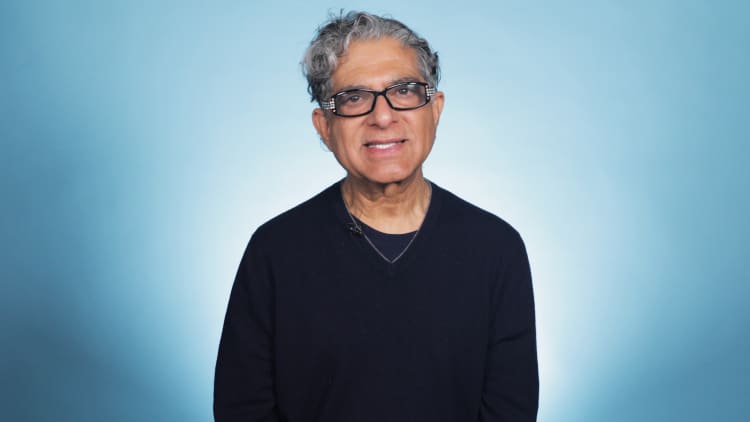Furrowed brow. Squinting eyes. Frowning mouth. Most of us subconsciously make a face when we're intensely concentrating on a task, whether it's lifting a weight in the gym or catching up on emails.
Olympic gold medal swimmer Michael Phelps went viral at the 2016 Rio Olympic Games because he was caught scowling intensely while warming up before his meet.
"I was in my own zone," Phelps told NBC's TODAY in a 2016 interview.
But a new study suggests that intentionally putting on your "game face" has benefits and can improve performance on a cognitive task by 20%.
For the study, researchers at the University of Tennessee at Knoxville wanted to see how employing a "game face" would help participants in two challenging scenarios: sticking their hand in a bucket of freezing cold water for as long as they could stand it and completing a complicated, 100-piece, black and white puzzle in just five minutes.
Half of the participants were shown photos of professional athletes and told to mimic their expressions while they completed the tasks. Researchers described a "game face" as an "intense look of determination." The other group wasn't prompted to do anything special.
While the "game face" didn't help participants withstand the frigid ice water, it did give them a significant boost on the cognitive task.
Those who made a face were able to complete more of the puzzle than those who did nothing. On average, the "game face" group completed 4.13 more puzzle pieces in five minutes than their straight-faced counterparts. And the people who made "game faces" were able to recover from the stress of completing the puzzle faster.
Although this study is small, other research has shown that facial expressions have an impact on everything from our emotions to our ability to perform in a workout. For example, a 2010 study showed that people tend to frown when they perform exercises, and their facial expressions may make the exercises feel easier. And a 2019 meta-analysis of 138 studies suggests that cracking a smile makes you happier, whereas scowling makes you angrier.
While other body language strategies, such as power-posing, may help people feel more powerful, research has shown that it doesn't translate to improved performance or any other behaviors.
"If making a game face has the potential to improve performance, we may find this concept can have application outside of the traditional venue of sports," Matthew Richesin, lead study author said in a release.
Like this story? Like CNBC Make It on Facebook.
Don't miss:



